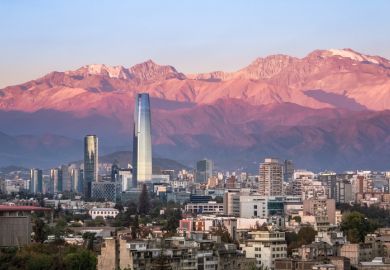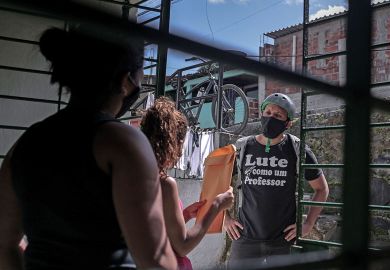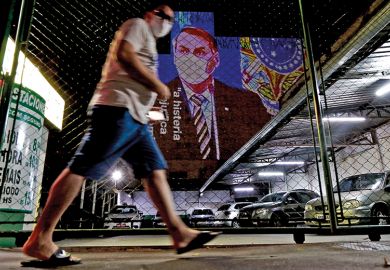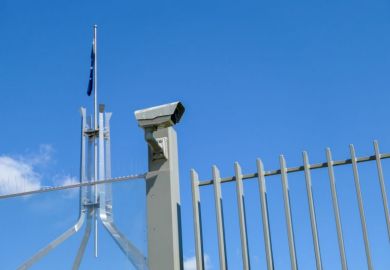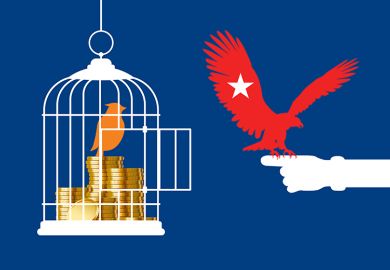Attacks on academic freedom, excessive state bureaucracy and a lack of scientific research funding are harming efforts to bring Brazilian researchers back to their homeland, a conference has heard.
Speaking at Times Higher Education’s Latin America Summit, senior academics and university leaders outlined a number of reasons why Brazilian scientists and scholars living abroad – many of whom have received scholarships to fund their postgraduate studies – were not willing to return.
“It’s very important for universities not to feel under attack, but many [academics] are consistently feeling this way through political persecution, which does not create a climate for professors to stay here,” said Claudia Costin, director of the Centre for Excellence and Innovation in Education Policy at the Getulio Vargas Foundation, a research centre and university based in Rio de Janeiro.
“We want to bring them home when they have acquired international knowledge, but efforts to attract talent are not successful – less because of a lack of finance for research but more because of this perception that universities are under attack,” said Dr Costin, a former senior director of education at the World Bank.
Her warnings follow concerns that Brazil’s president, Jair Bolsonaro, has frozen funding for higher education and research, particularly for those institutions where anti-government political activities have taken place on campus. On the eve of his election in 2019, he tweeted his government’s commitment “to combat the Marxist trash that has occupied teaching institutions”, according to Scholars for Academic Freedom in Brazil.
For Denise Carvalho, rector of the Federal University of Rio de Janeiro, the biggest hurdle to bringing back émigré researchers was finance – an issue that stopped graduates pursuing a research career in the first place, she said.
“It is very difficult to produce the next generation of academic talent because some important attractions [for career progression] do not exist in this country,” Professor Carvalho told the virtual event, held in partnership with the University of São Paulo.
“Research infrastructure is becoming poorer and poorer – most of the equipment [you need] is not available in our country,” she said, adding that “even if we had a competitive career offer, it would be very difficult to retain our talent [for this reason]”.
The mistake of failing to invest in science had been exposed during the coronavirus pandemic, added Professor Carvalho. Brazil has suffered some of the highest casualty rates in the world and vaccination rates remain low, partly as a result of having no homegrown vaccine available, she argued.
“We are dependent of other countries because we do not have our own vaccines,” said Professor Carvalho, who explained that recent science policy had made it impossible for Brazil to develop and produce Covid jabs on its own.
“We have to abandon this pathway as it was a big error,” she said.
Meanwhile, Carol Gilberto Carlotti, head of international affairs at the Universidade Federal do ABC (UFABC), which is based in São Paulo, said rigid rules on academic hiring meant that state universities could not recruit Brazilian academics working overseas even if those staff wanted to come back.
“I know professors who left and want to do double appointments [with foreign universities], but the regulation will not allow it,” he said.
Register to continue
Why register?
- Registration is free and only takes a moment
- Once registered, you can read 3 articles a month
- Sign up for our newsletter
Subscribe
Or subscribe for unlimited access to:
- Unlimited access to news, views, insights & reviews
- Digital editions
- Digital access to THE’s university and college rankings analysis
Already registered or a current subscriber?


